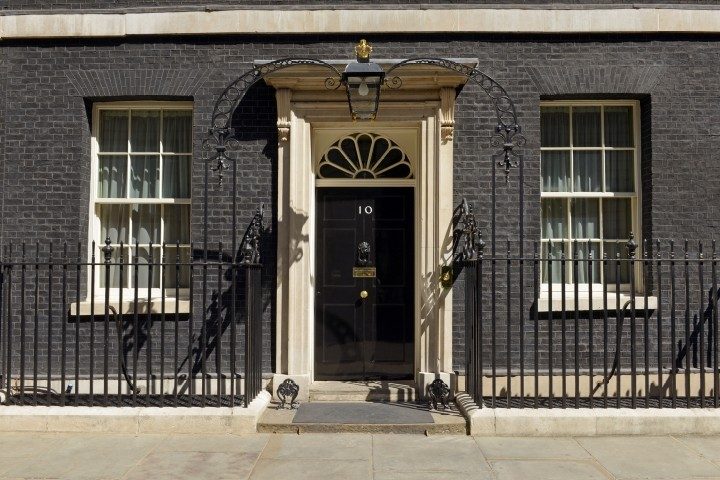
British families, already struggling financially due to COVID-19 restrictions that have closed many businesses in the country, are in danger of having their government make things even worse for them, all in the name of fighting climate change. Prime Minister Boris Johnson and Chancellor Rishi Sunak have ordered government departments to research the amount of greenhouse gases produced by different sectors of the economy.
“The chancellor and the prime minister want a sector-by-sector view on how we could implement some form of carbon pricing and an overall roadmap to deliver in the next decade,” the memo reportedly stated.
Number 10 Downing St. is looking to extend their “polluter pays” principle to all economic sectors. Currently, only airlines and power generators are subject to surcharges for their emissions. But new taxes could fall heavily on food producers and on companies that provide home heat.
While Number 10 hasn’t revealed any taxation numbers yet, a University of Oxford team has calculated amounts at which certain staples would need to be taxed in order to meet Johnson’s expectations for emissions reductions. According to Oxford, surcharges of 40 percent on beef, 25 percent on oils, 20 percent on milk, 15 percent on lamb, and 10 percent on chicken would be needed to effect consumption and emissions in a way that the prime minister expects.
The Oxford researchers also floated the idea of a 10-percent agricultural carbon tax on rice, wheat, pork, corn, eggs, vegetables, and sugar to cover the environmental impact of that farming.
The Daily Mail broke it down into real numbers for consumers:
This means that the cost of a sirloin steak, currently around £4.50 ($6.18) in the supermarket, would be around £6.30 ($8.65) and mince (ground beef) would rise £1.46 ($2.01) to £5.02 ($7.03). Olive oil would increase from £3.75 ($5.15) to £4.69 ($6.44).
Four pints of milk would go from £1.09 ($1.50) to £1.32 ($1.81), four lamb chops up to £7.50 ($10.30) from £6 ($8.24), six chicken breasts up 50p per pack to £5.50 ($7.56) while a whole chicken would increase in price by 28p to £3.78 ($5.19); Eggs would rise 5p to 94p ($1.29) and sugar would increase by a penny to 66p ($.91).
Great Britain’s meat industry believes that it is being unfairly singled out by the climate-alarmist movement. “Britain’s meat industry is given a lot of unfair criticism over its environmental impact,” said Neil Shand of the National Beef Association.
National Pig Association chairman Richard Lister added, “There has been a heavy bias against meat when it comes to climate change discussions.”
Shadow chancellor Anneliese Dodds of the Labour Party warned that any tax hikes must be fair to everyone.
“We will consider any longer-term changes to the tax system carefully, bearing in mind that the UK is way off meeting its carbon cutting targets,” Dodds said, adding that any changes must go “hand in hand with action to shore up family finances and improve living standards.”
Taxpayer advocacy groups are already sounding the alarm, believing that taxpayers in the U.K. are already burdened enough.
“New eco taxes would leave slim pickings for struggling families, who rely on cheap energy and food to heat their homes and put dinner on the table,” said John O’Connell of the Taxpayer’s Alliance. “With the highest tax levels in 70 years, taxpayers have already had there belts tightened.”
“Ministers must ease the burden on Brits before any green tax hikes,” O’Connell added.
Despite the memo’s call for a “sector-by-sector review on how we could implement some form of carbon pricing,” Number 10 denied that a “meat tax” was in the works on Friday.
However, climate alarmists are adamant that food production and consumption are a main reason for increased carbon dioxide in the atmosphere, which allegedly is causing catastrophic global warming. Globally, politicians and climate activists have been calling for a “sin tax” on meat products for quite a while now. It’s hard to believe that the government isn’t considering punitive measures against that sector.
The World Economic Forum, proponents of “The Great Reset,” have even suggested that mankind can be reprogrammed to enjoy such alternative food sources as weeds and bugs as a way to reduce the carbon emissions from the agricultural sector.
There’s really no question about it. The agricultural industry is a primary target of climate hysterics.
With Great Britain set to host COP26 this year, the British elites are looking to make their country a leader in cutting greenhouse-gas emissions. And the British consumers will have to pay for that, one way or another.



